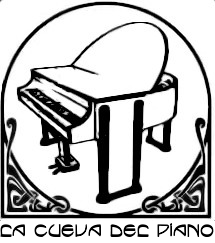Postlude
1. Elegie (France, 1916)
The closing piece of this film recital is a short and obscure work composed by Debussy: Elegie. The French composer died impoverished and was buried in obscurity while the Germans were bombarding Paris. The simplicity of this piece symbolizes our insignificance before the events that shape life and death; even in the case of such distinguished personages as Debussy.
Elegie was one of the last piano pieces that Debussy wrote. It was included in Pages Inédites sur le Femme et la Guerre, a publication that Mary Mallor dedicated to Queen Alexandra honoring the work of Allied women in the war, and for the benefit of the French orphans of war.
The quote I chose for the Elegie is Paul Hindemith's touching account of how he learned of Debussy's death. He received the news as he was playing Debussy's string quartet in a German military camp. The fact that German musicians played contemporary French music in their cantonments manifests that they valued music over national sentiment. Such was also the case of Maurice Ravel, who boldly defied the French prohibition of playing German music by programming music by Arnold Schoenberg through the Société Musicale Indépendante (SMI). Ravel also dedicated a masterpiece, the Piano Concerto for the Left Hand, to Paul Wittgenstein—brother of the philosopher Ludwig Wittgenstein—who had lost his right arm while fighting in the Austrian army during the Great War. For these musicians, music spoke to a human soul that transcended political borders.
The recital concludes with Walter Benjamin's thoughts on an imaginary “Angel of History”. The excerpt, compiled in his Thesis for the Philosophy of History, was written during an unsuccessful attempt to escape from the Gestapo in the Second World War. In the quote, Benjamin expresses his wish that humanity will finally learn from its past and ultimately put an end to the chain of catastrophes that continues to shape history.

|

|



